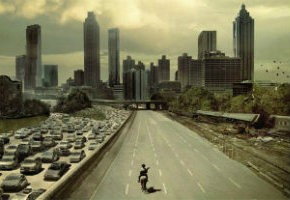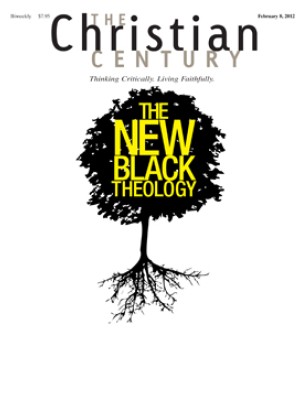Attack of the zombies

If you've been paying much attention to pop culture, you've sighted more than a few zombies. The living dead shamble ominously through comic books, books, movies, video games and television shows. Their movie appearances include dramas and even a few comedies. They've appeared in literature with mashups of zombies and characters from Jane Austen's Pride and Prejudice. On television, they are the subject of AMC's series The Walking Dead.
The zombie genre is maturing. All zombie plots still include great hordes of the stalking dead, with heroes who hold off the hordes with guns, axes, shovels and whatever other bludgeoning instruments come to hand (it is not a genre for the weak of stomach). But productions such as The Walking Dead focus more on the drama and dilemmas of the living than on the spectacular destruction of the undead. What do you do if a zombie is your son or spouse or great aunt? Is a world overrun by zombies a world that children should be born into? How can the living remain human and humane when they regularly must destroy zombies?
Read our latest issue or browse back issues.
The maturation of the genre helps to account for some of the popularity that zombies now enjoy. But there are other things going on that give them resonance in our culture. One factor is simply how crowded our world and lives have become. In traditional cultures, the ordinary person encountered no more than a dozen or so people each day, and these were almost always familiar faces. Our urban and suburban routines, however, bring us into contact with scores of people each day—not just family but workmates and a slew of unfamiliar faces belonging to cashiers, gas station attendants, tollbooth operators, baggage handlers and restaurant staff.
Add to this the multitudinous daily contacts we have with people via television, radio, e-mail and the Internet. No matter how assiduously we work at keeping up, the e-mails endlessly mount, the magazines and newspapers keep rolling off the presses, the new blogs keep getting created. And much of this contact takes the form of junk mail or junk e-mail—messages coming at us from no discernible persons but from (apparently) soulless corporations and other agencies.
We know that real people are behind the onslaught of messages, petitions, political organizations, charities and assorted screams for attention that we encounter. But the real people are well concealed. In this regard, it feels like we are being attacked by zombies. The messages we receive seem to have no soul or life. They are relentless. They appear in hordes. And very often the only way to survive them is by eliminating them as fast as possible. Thankfully, we can use delete buttons and not bloody axes.
Some other conditions make us feel besieged by zombie-like forces. Since the 1970s, our politics have become increasingly divisive and heated. Demonization and dehumanization of political opponents is common. And sometimes those who "turn against us" are those who were formerly close friends and even family members. They are like us in many ways, but somehow they are on the wrong side and even seem to lack part of their soul. They are apparently alive but in key ways are seen to be on the side of death.
Of course, it's even easier to dehumanize and demonize those who were never close to us. The other who is of a different religion or race is all too easily regarded as a zombie, as a member of huge, senseless, unrelenting forces that keep advancing threateningly on us and our way of life. The opposite of a way of life is the way of death, and so we are constantly under pressure from the living dead.
At least one other factor makes the zombie meme resonant and appealing. That is the constant threat of contagion. We know enough about invisible microbes that can make us sick unto death for contagion to loom as a dark possibility in our crowded, divisive world. Here the genre of zombie tales merges with straight-on medical horror stories about real-life epidemics, as in the recent movie Contagion.
A zombie's bite means contagion and becoming one of the undead. The ultimate threat of zombies, then, is not just that they can destroy, but that they can make us just like them—soulless, brutish, a mindless part of the struggling masses that advance on us from every side. In such ways, the zombie fictions speak to our all too real fears.







